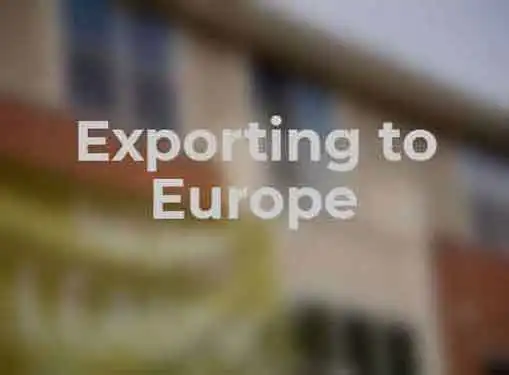Articles on Exporting
Exporting to Europe
U.S. businesses have been exporting products to Europe for decades. But for the inexperienced, exporting to Europe can be a challenge.
Despite occasional blow-ups, the U.S. and Europe have close economic and political ties.

Although Europe is far from monolithic, the creation of the EU (European Union), including the adoption of the euro as a common regional currency, has solidified the economic ties among European nations and made the region a global economic force as well as a powerful U.S. ally.
Trade relations between the U.S. and Europe have existed for centuries, long before the U.S. gained independence and formed its own national identity. Yet many U.S. companies mistakenly assume that America's long relationship with Europe is a sign that exporting to Europe is easier than exporting to other parts of the world. In fact, exporting to Europe requires the same effort that's required to export products to other regions. European importing requirements can even be more demanding, especially when compared to the import regulations of less-developed nations.
European nations are clearly eager to establish trade relationships with U.S. exporters. But before you bank on building your business with euros, you'll need to prepare your export model for the realities of a diverse European import scene.
- National diversity. Europe is an exceptionally diverse economic environment. The U.K., Germany, and eastern bloc nations feature market economies that are familiar to U.S. entrepreneurs. But countries such as Italy maintain certain old world economic traditions that can be difficult for American exporters to understand and navigate without in-country assistance.
- Timelines. The pace of life in many European is markedly different than the pace of life in the U.S. Workdays may be shorter and many Europeans lack the sense of urgency that is typical among American business professionals. If you go into the process with the expectation that your business partners will accommodate tight deadlines and short business cycles, you may be setting yourself up for disappointment.
- Language barriers. Language is a barrier to doing business in Europe, even though English speakers can be found throughout the continent. However, some countries (e.g. France) consider their native language to be a matter of national pride and prefer to do business in their native tongue. Whenever possible, make an effort to learn the language and hire translators capable of speaking the language of business as well as the language that is spoken in the region.
- Regional nuances. Exporters to Europe have to consider the existence of regional variations within European nations. Some European countries delegate economic and industry governance to regional (rather than national or provincial) oversight bodies. When in doubt, hire an in-country agent to facilitate business relationships and regulatory compliance.
Share this article
Additional Resources for Entrepreneurs



Conversation Board
We greatly appreciate any advice you can provide on this topic. Please contribute your insights on this topic so others can benefit.